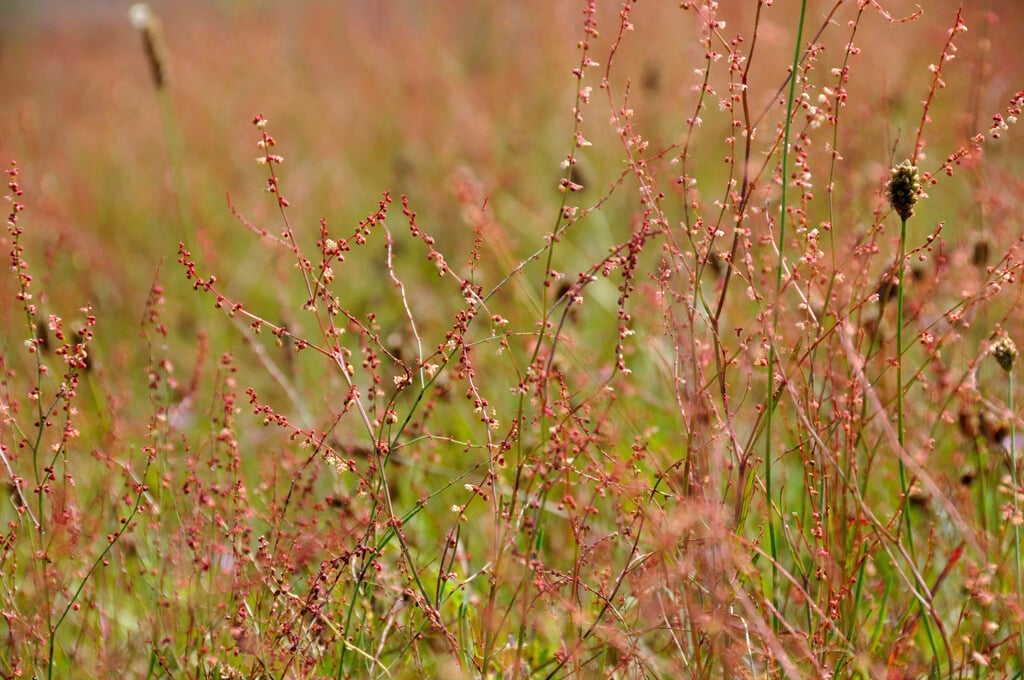Rumex acetosella
sheep's sorrel
A fast-growing, spreading perennial with ovate green leaves, arrow-shaped at the base, on rosettes of basal leaf stalks and on stems. Leaves are edible, sour tasting but contain oxalic acid so should not be eaten in large quantity. Produces spikes of red to yellowish flowers to 30cm high
Size
Ultimate height
0.1–0.5 metresTime to ultimate height
1 yearUltimate spread
0.1–0.5 metresGrowing conditions
Moisture
Moist but well–drained, Well–drainedpH
Acid, NeutralColour & scent
| Stem | Flower | Foliage | Fruit | |
| Spring | Green | |||
|---|---|---|---|---|
| Summer | Red Yellow | Green | ||
| Autumn | Green | |||
| Winter | Green |
Position
- Full sun
- Partial shade
Aspect
East–facing or South–facing or West–facing
Exposure
Exposed or Sheltered Hardiness
H4Botanical details
- Family
- Polygonaceae
- Native to GB / Ireland
- Yes
- Foliage
- Deciduous
- Habit
- Clump forming
- Potentially harmful
- Harmful if eaten in large amounts. Wear gloves and other protective equipment when handling Pets: Harmful if eaten in large amounts - for further information and contact numbers regarding pets, see the HTA guide to potentially harmful plants
- Genus
Rumex can be annuals, biennials or perennials with mostly basal, simple leaves and erect panicles or racemes of small greenish or reddish flowers followed by reddish-brown, triangular fruits
- Name status
Correct
How to grow
Cultivation
Grows best in acid to neutral soil, in a sunny position; in mild areas may grow all year round. Worth cultivating in a species-rich lawn or wildflower meadow for its edible leaves which add a lemony tang to salads, its importance for wildlife, supporting over 50 species of insect, and for its attractive reddish flowers and seedheads. See sheep's sorrel for more information
Propagation
Propagate by seed
Suggested planting locations and garden types
- Wildflower meadow
- Wildlife gardens
Pruning
No pruning required, but should be deadheaded if self-seeding becomes a nuisance
Pests
Diseases
Generally disease-free
Get involved
The Royal Horticultural Society is the UK’s leading gardening charity. We aim to enrich everyone’s life through plants, and make the UK a greener and more beautiful place.
